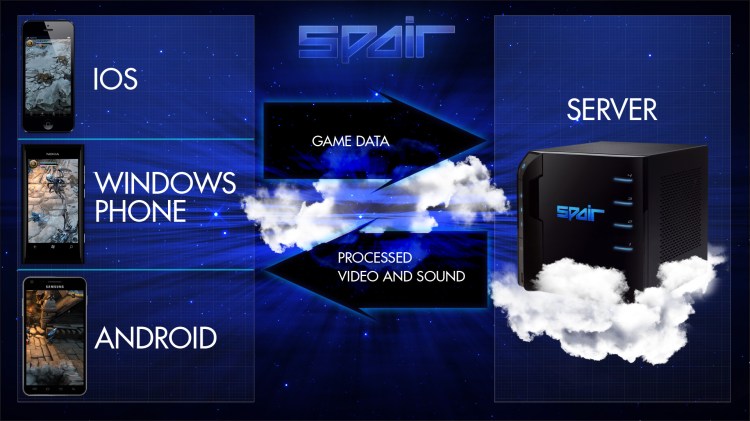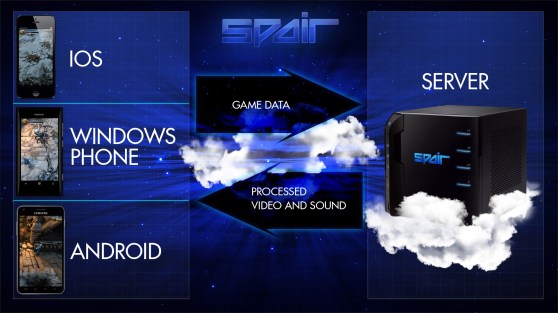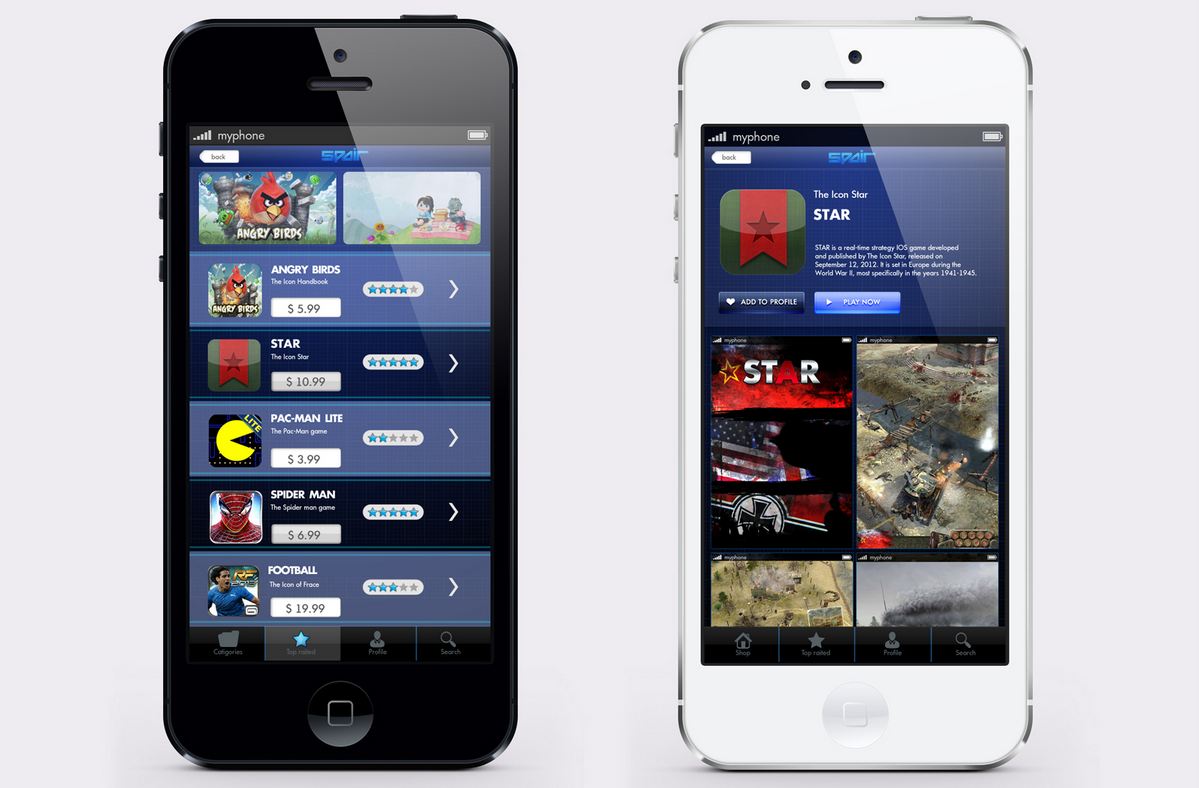While developing games for smartphones is much cheaper than producing a triple-A title for home consoles, fragmentation still has the potential to balloon costs for smaller studios. Many developers avoid dealing with fragmentation by ignoring Android, but as monetization improves on Google’s mobile operating system, developers that skip Android might be leaving money on the table.
Enter Spair, a new product from the company of the same name that developers can use to produce a game once and release it on any mobile device using cloud computing. It works a lot like OnLive, the cloud-streaming service for console games, but Spair wants to focus on smartphone apps.
The idea is developers would only need to release their games on Spair and then gamers can get the same experience on their iPhone, Android, or Windows Phone devices.
The company founded by Tim Abdullaev in Tashkent, Uzbekistan claims to have the product working in its early stages. It wouldn’t provide a date for the final release.
Something like Spair could cut down on fragmentation since developers would no longer have to deal with the various intricacies of dozens of different devices. As long as a consumer’s phone can run Spair, then they’ll get the same game as everyone else. Also, you could save your games remotely, so even if you lost your phone, you should just have to sign in to retrieve all of your progress.
But Spair isn’t without its drawbacks. Since it is a cloud-based service, it requires a constant Internet connection. Lose your connection and you lose your game. It’s also likely that the lag that affects OnLive’s service will exist in this solution as well. It’s possible that Spair has better technology than OnLive, but we won’t know that until Spair proves it.
Finally, you’d have to purchase games separately in Spair’s store. That’s annoying on its own, and Google and Apple both prohibit apps that have their own application markets.
Gamers could still sideload Spair on to their Android devices and jailbroken iPhones, but Spair likely won’t ever make it on to the Google Play market or the Apple App Store.
VentureBeat's mission is to be a digital town square for technical decision-makers to gain knowledge about transformative enterprise technology and transact. Learn More



